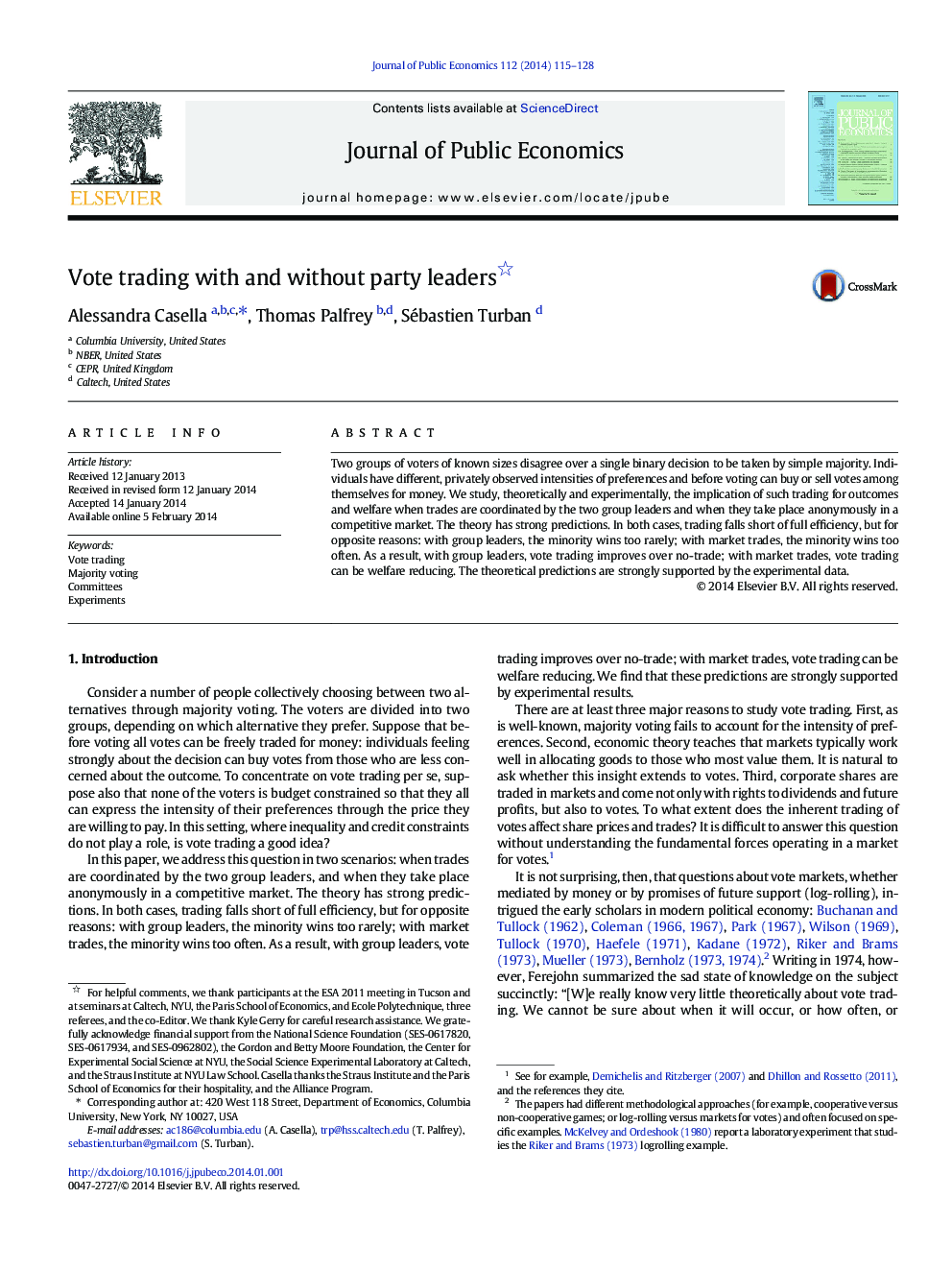| Article ID | Journal | Published Year | Pages | File Type |
|---|---|---|---|---|
| 7370405 | Journal of Public Economics | 2014 | 14 Pages |
Abstract
Two groups of voters of known sizes disagree over a single binary decision to be taken by simple majority. Individuals have different, privately observed intensities of preferences and before voting can buy or sell votes among themselves for money. We study, theoretically and experimentally, the implication of such trading for outcomes and welfare when trades are coordinated by the two group leaders and when they take place anonymously in a competitive market. The theory has strong predictions. In both cases, trading falls short of full efficiency, but for opposite reasons: with group leaders, the minority wins too rarely; with market trades, the minority wins too often. As a result, with group leaders, vote trading improves over no-trade; with market trades, vote trading can be welfare reducing. The theoretical predictions are strongly supported by the experimental data.
Keywords
Related Topics
Social Sciences and Humanities
Economics, Econometrics and Finance
Economics and Econometrics
Authors
Alessandra Casella, Thomas Palfrey, Sébastien Turban,
